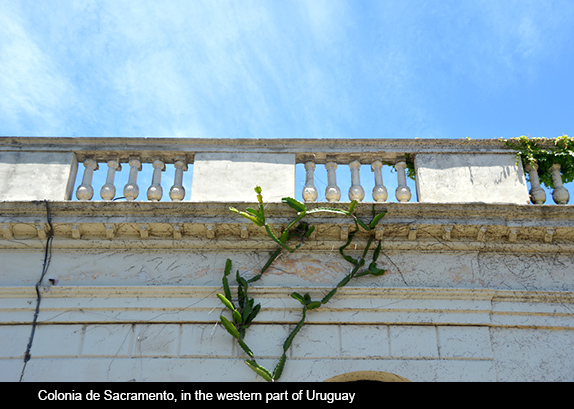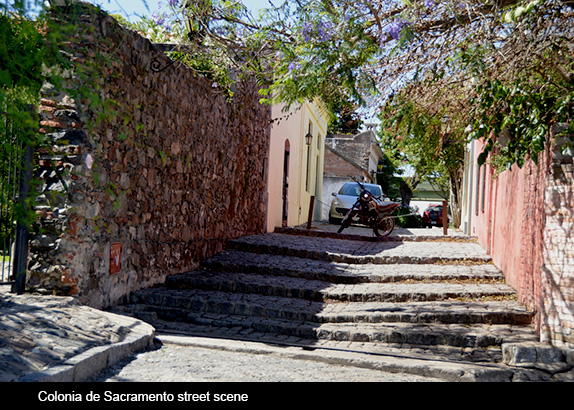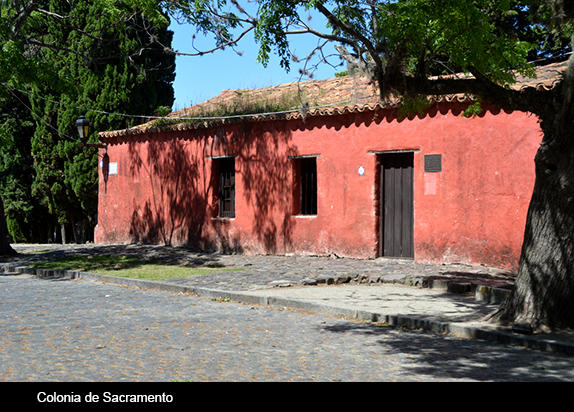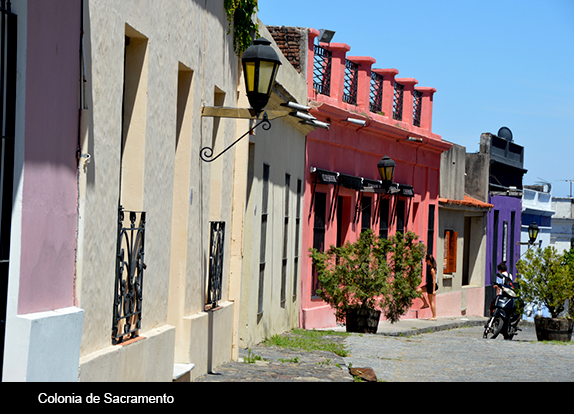Editor's note: This is the third in a series examining social policies and changes in Uruguay. The first examined healthcare and education, the second looked at Uruguay's energy policy.

Following my previous two articles about Uruguay, today I want to write about four recent laws promulgated by the Broad Front government currently in power. In the first of those articles I briefly outlined the small South American nation’s twentieth century history: from republic to fascist dictatorship, back to bourgeois democracy, and finally to the progressive coalition in office today. I talked about its advances in public health and education. In the second I spoke about energy reform.
Uruguayans know what it is like to have their rights ripped from them dramatically. Almost every family can reference members on both sides of the political divide. In the generation of my daughter-in-law’s grandparents, a great uncle was a dearly beloved Italian immigrant of Anarchist tendencies while another relative was one of the generals responsible for ordering the torture of young people, including those related to him by blood.
During the worst years of the dictatorship, a list of words such as freedom were outlawed; one could be arrested for simply uttering them in public. Although unauthorized assembly was forbidden, people found ways to speak. Suffrage is obligatory in the country. When the military rulers held a referendum in support of their continuance, in which “yes” was the only option on the ballot, 57.2% of the voters wrote in the word “no,” hastening the end of that dark period.

Today, although there is certainly a conservative segment of the population that opposes the Broad Front’s legislative advances, the majority has been able to pass a number of impressive laws aimed at giving people a better quality of life. The four I will focus on here are the decriminalization of abortion law that was passed in October 2012 and survived a referendum attempt to defeat it in June 2013, the Marriage Equality Law, that went into effect on August 5, 2013; the regulation and commercialization of marijuana, that substituted a “war on drugs” policy with one that focuses on rights and public health, and became law on December 10, 2013; and a media law that is currently under discussion and expected to pass shortly.
Uruguayan feminists and others who support a woman’s right to choose have been fighting for abortion legislation for almost a quarter century. In October 2012 the Senate, dominated by the nation’s progressive Broad Front and in a 17/14 vote, was finally able to pass a bill legalizing abortion during the first trimester. The only other Latin American nations to have taken this step are Cuba and Guyana. Colombia has eased its ban in cases of rape and incest, and Mexico City legalized the practice in 2007.
Here in the United States, we continue to have to struggle, state by state, against right-wing attacks on our 1972 law. Albuquerque’s recent resistance of an attack by rabid outsiders was a case in point. In Uruguay, opponents of the new law staged a challenge in June 2013. They needed 655,000 voters, a quarter of the country’s electorate, to cast ballots calling for a referendum. Only 226,653 people voted, and a woman’s right to reproductive choice was saved.
Uruguay is the third country in the Americas to legislate marriage equality. Canada and Argentina preceded it, and Brazil is expected to follow soon. Some major cities in Latin America have passed egalitarian laws, while their countries have not yet taken that step. Marriage equality has gained ground in the US, but currently exists in only 18 states. In New Mexico five county clerks took the initiative to marry same-sex couples this past August and on December 19th New Mexico became the 17th state to legalize same-sex marriage.

In Uruguay the legislation passed with strong majorities in both the House and Senate. In the House, called the Chamber of Deputies there, the bill received the backing of 71 of its 92 members who were present. President José Mujica signed the legislation into law on May 3, 2013. And so the country joins the Netherlands, Belgium, Spain, Canada, South Africa, Norway, Sweden, Portugal, Iceland, Argentina, Denmark, France and New Zealand in recognizing marriage equality. England and Wales are expected to take the step in 2014.
The Uruguayan law is ample. It creates a single set of rules for everyone, gay or straight. In marriage contracts, instead of the words “husband and wife,” these are replaced with the gender-neutral “contracting parties.” All couples get to decide which parent’s surname comes first when they have children. All couples can adopt or undergo in-vitro fertilization procedures.

The new marriage equality legislation also updates divorce law in Uruguay, which in 1912 gave women only the right to unilaterally renounce their wedding vows as a sort of equalizer to male power. Now either spouse will be able to request a divorce and get one. The law also raises the age at which people can legally marry: from 12 years old for girls and 14 for boys to 16 for both genders.
The next important new law was voted on while I was visiting the country. Broadly expected to pass, the regularization and commercialization of marijuana nevertheless brought cheers in the capital city (although a majority of Uruguayans, especially those living in the countryside, are not in favor of legalization).

President Mujica and other members of the Broad Front government see the new marijuana policy as a first step toward dismantling the dangerous drug trade that has taken possession of many parts of the continent and threatens Uruguayan security. “We ask the world to help us create this experience,” Mujica told A Folha de Sao Paulo during an interview he gave at his family’s flower farm on the outskirts of Montevideo. “It will allow us to adopt a socio-political experiment to address the serious problem of drug-trafficking. In the case of marijuana the criminal effects of trafficking is worse than the drug.”
Needless to say, the US government has taken a critical view of this law. A State Department spokesman, Pooja Jhunjhunwala, emphasized that Uruguay must comply with the 1961 UN Convention on Drug Control, which bars marijuana possession, use and distribution. Clearly in 2013 we live in a different world from the one we inhabited in 1961. Mujica’s response was that “There’s always going to be pressure. There’s an apparatus in the world that lives by repressing, and it costs a lot of money.”

I would add that it also costs a lot of addicts, a lot of misery, and a lot of lives. Over and over again, in a number of countries, we have seen how changes in marijuana policy reduce illegal profit and hit the traffickers where it hurts. Mujica, says he himself doesn’t care for the soft drug, but insists that his intention is to regulate an illicit market that already exists. “The repressive path has failed,” he added.
Under Uruguay’s new marijuana law, pot smokers who register with the government will be able to buy weed from pharmacies or grow up to six plants in their homes. To avoid drug tourism, only Uruguayan citizens will benefit. The country plans to adopt a unique genetic strain of marijuana to help combat the drug’s unrestricted flow. “Molecularly, it will be possible to identify our strain,” Mujica said.

Media laws are by their nature double-edged, and Uruguay’s proposed legislation is no exception. It is described as a comprehensive law to update for the 21st century the norms and regulations that oversee communications. The bill, which has received the praise of several journalistic and freedom of expression organizations, is not as controversial as the one recently approved in Ecuador, or as contentious as the one currently in the hands of Argentina’s Supreme Court. Still, it is not without its critics. While it has been lauded for its intention to set limits on media concentration and guarantee spaces for independent content, critics say that some of its provisions are broad, ambiguous and overreaching.
To understand such a proposal of law, it is important to know something about the media panorama that exists in the country. Commercials, such as those paid for by pharmaceutical companies that flood our airways and TV channels with admonitions to “ask your doctor if such and such a drug is right for you,” have so far not been permitted to invade Uruguay. Major news outlets offer a broad range of political positions. Government media is a great deal more plural than NPR or PBS.
The law’s most important features are its national quotas of production and its anti-concentration measures. It would mandate that 60% of audiovisual content be nationally produced or coproduced, 30% of all content must be aired by independent producers, and 40% of that independent content cannot come from the same source. The law would also require programs to accompany parts of their transmissions with subtitles or sign language interpretation.
According to the crafters of the bill, the law is intended to “support general educational purposes,” including art, science, history, and culture that promote the “integration of socially vulnerable groups.” Drafters and supporters also claim that the law will “facilitate democratic debate” by “guaranteeing a variety of information and opinions” that “stimulate the production of national artistic, professional, and cultural content.”
The media law proposes to create a new regulatory agency. Frank La Rue, the UN Special Rapporteur on the Right to Freedom of Expression and Opinion, has expressed his support, although he says he hopes that the legislative branch, not the executive, be made responsible for appointing the majority of the agency’s members. Freedom of Speech groups such as Reporters Without Borders and Freedom of Expression Exchange are optimistic about the law’s provisions.
As is true in the US, many supporters of the Broad Front feel it has moved too slowly in the matter of promulgating new law. Others are proud of a government that time after time has come down on the side of people’s wellbeing.
No nation is an island unto itself, and what happens in one is influenced by and influences what happens in others. In Latin America, regional integration is important. Like the European Union, UNASUR (which includes Argentina, Bolivia, Brazil, Chile, Colombia, Ecuador, Guyana, Paraguay, Peru, Suriname, Uruguay and Venezuela) promotes trade, economic benefits and freedom of movement. These countries differ historically, culturally, linguistically and politically. In general, however, when the United States began to focus on the Middle East and leave Latin America somewhat more to its own devices, many of these states moved to the left.
There is no doubt in my mind that Uruguay is at the forefront of positive change in the areas of women’s reproductive rights, marriage equality, and confronting the violence the international drug trade produces. My own jury is out regarding its media law. But from the perspective of someone in the United States, whose corporate media has sold out and alternative media struggles, I am eager to see how it unfolds.





Responses to “Friday Voyage: Lessons from Uruguay Part 3”